Times are changing, and so too must charities. After 75 years in Oxford, Oxfam International will soon be relocating its headquarters to Nairobi, the charity’s executive director Winnie Byanyima announced last night.
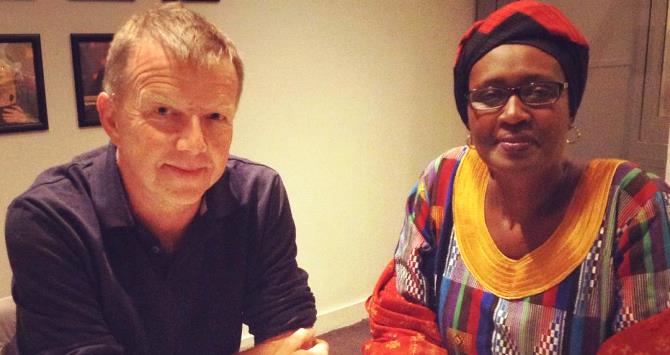
Addressing a sold-out Old Theatre, Ms Byanyima spoke about her experience growing up in Uganda and the problems that still beset the continent, before announcing that the company headquarters would be moving to Africa to remain dynamic and relevant.
Determined not to be ‘Afro-pessimist’, she spoke of her pride as an African woman, coupled with her concerns about poverty and income inequality that maintain gender and wealth division.
Born to parents who were both schoolteachers, the home in which she was raised became a stronghold for resistance against oppression. Her father ran for parliament, but as the opposition party gained influence it was soon suppressed. Allies of her family were seduced towards the majority government and the country became coerced into a one-party rule.
Within a decade of independence in Uganda, it had become clear that this independence was a false dawn, she said.
Rising for whom?
On the day when Angus Deaton received a Nobel Prize for his focus on economic inequality and poverty reduction, Ms Byanyima was keen to highlight how prevalent these problems still are across Africa.
Looking at the issues that the continent now faces, she highlighted a strong rate of growth across African economies – reportedly an average of 5% – but questioned what the benefits were for African people.
One in two Africans still lives in poverty, she said – four times the global average. That number is projected to increase by tens of millions by 2030 if the continent’s growth trajectory remains the same.
What this shows is a clear disparity in income inequality, which is compounding both poverty and gender inequality. Fewer than a dozen people have the same wealth as the poorest 50% of the African population.
In countries such as Angola, where income inequality is widespread, strong growth has had little impact on the problem. However, in countries where income inequality has been reduced, figures suggest that poverty levels fall by a factor of three or four times.
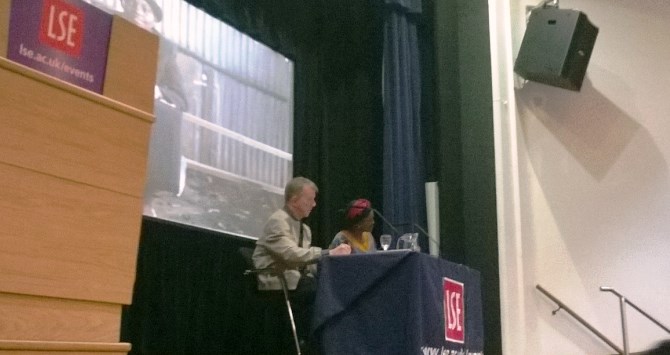
Some solutions are blatantly obvious. Serious investment in agriculture, for example, would reach 75% of the rural poor. But the dynamics of power are making it difficult to achieve such far-reaching gains.
Instead, African nations are finding themselves at the whim of corporate giants, who are offering huge investment opportunities in exchange for tax breaks. Offers typically come with ruthless time pressures and a warning that if the country does not accept, their neighbours will.
This brand of tax competition is both unhealthy and unsettling, Ms Byanyima said.
Minerals and other major sources of wealth are too easily captured by elites, meaning that inbound cash benefits only the wealthiest and further perpetuates income inequality. Such structures also create little in the way of quality employment, which is more likely to keep people trapped in poverty than alleviate it.
The power of multinational corporations means that much of Africa’s riches are going back to rich countries.
To those ends, Africa is rising, she concludes. But rising for whom?
Global Powers, and Speaking Truth
I love this job, because I can speak truth to power.
Winnie Byanyima
Having listened to discussions involving the World Bank, the IMF and other major organisations, Ms Byanyima says it’s clear that what is missing is a proper analysis of global power dynamics.
Consequently, at the top of Oxfam’s agenda is a focus on international tax reform to stop the exploitation of African nations.
There is also a need to address the relationship between states and corporations in Africa, she said, to ensure that good investments for companies also represent good investments for the countries involved.
Speaking about the relocation and her role in Oxfam, she notes (with shades of fellow Ugandan expert Tim Allen), “I love this job, because I can speak truth to power”.
“It does get me in trouble from time to time”, she adds, though she also points out that leaders will only be as effective for their people as we are able to hold them accountable. We shouldn’t hold out too much hope in rich people, she jibed.
“Two words”, quipped Duncan Green, who chaired the evening. “Donald Trump!”
Announcement by @Winnie_Byanyima that Oxfam's International HQ will soon relocate from Oxford to Nairobi. Generates applause! #LSEAfrica
— LSE International Development (@LSE_ID) October 12, 2015
About the MSc African Development
Related Posts
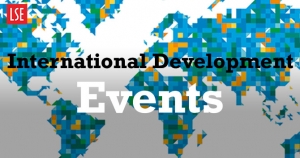 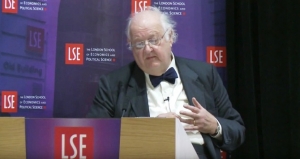  |




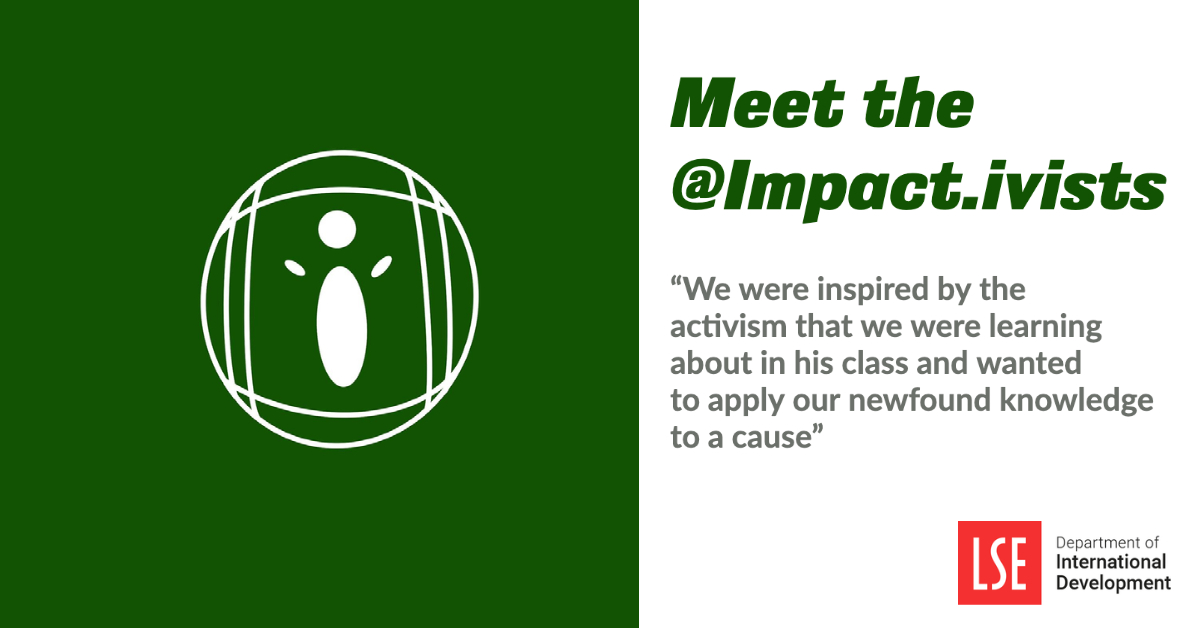
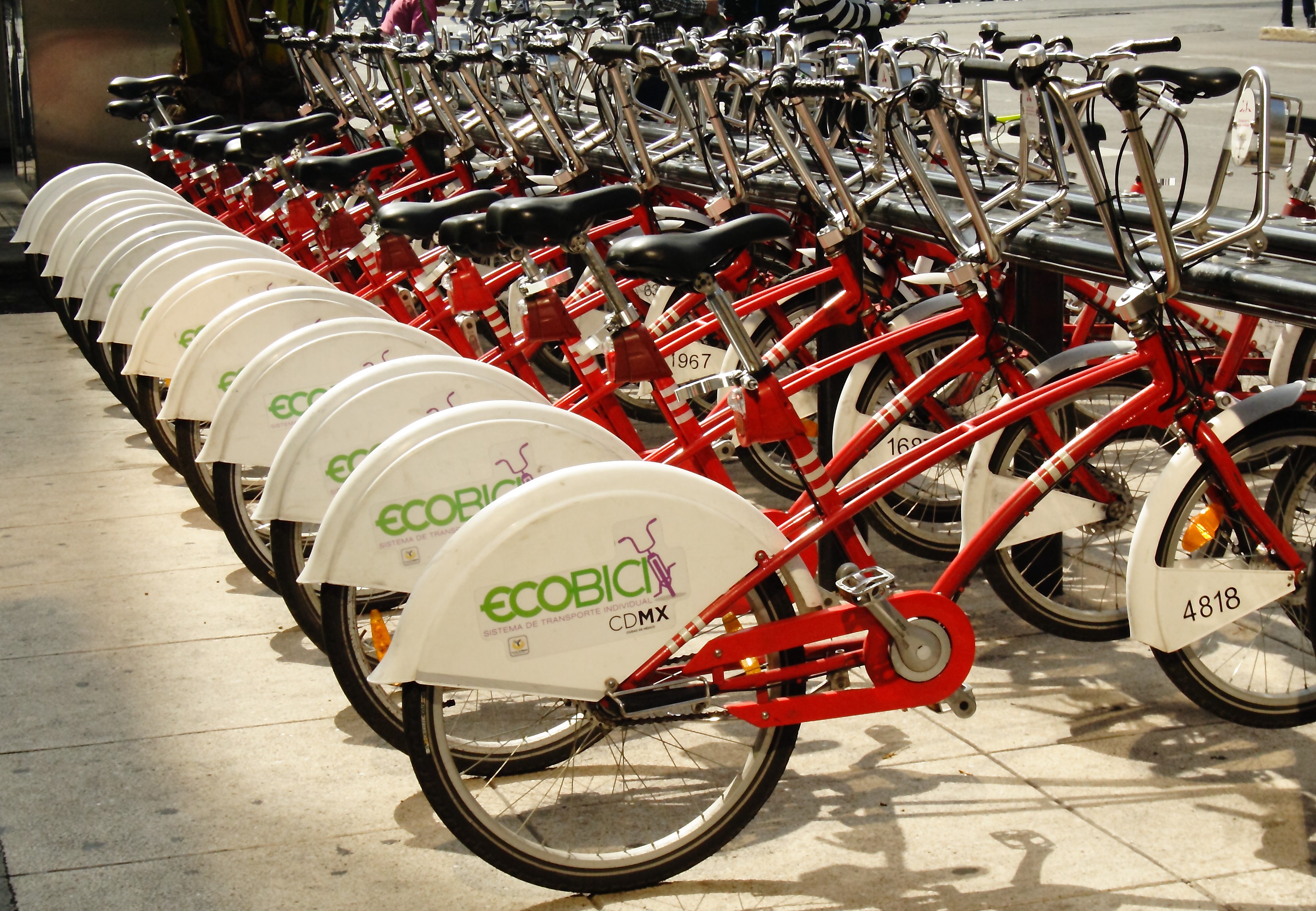
We need leadership in Africa that is pro people to help deal with the selfishness of the local elite. Until then, Africa may grow to benefit the dictators in leadership, the elites and multinational corporations as the poor become poorer. Thank you Winnie for speaking the truth to the rich and powerful.
Oxfam is good to moving to Africa as per now and leave Europe. Because most of its activities are find in Africa.
A lot of effort is needed to stop corruption if Africa is to develop. This will also reduce the repeated Y inquality in her speech.
Is the move to Africa a reflection of how OXFAM has been eclipsed by other charities. Charities are better off headquartered where the donors are – that is the reality of our world. Or is this move simply symbolic to make Africans think they control something they don’t?
Keneth, this is a common trend if you try to check it out. Actionaid moved to Jo”berg about 6 years ago. In any case, the donors are more concerned with cost cutting. But this is a reflection of the Charities commitments to identify more with southern countries
The idea of relocating OXFAM to Nairobi is welcome. This is the true evidence of effective in service and am very happy for it. Its very Winnie Africa may grow to benefit the dictators in leadership, as the poor become poorer. Thank you Winnie for speaking the truth to the rich and powerful.
I don’t understand what Agaba say by where headquarter are! Any one now or many know that those donors what they give Afrika in name of donors, what they get from that continent is more than double what Afrika give Europe is far more than that $1 they get back £40!! Is that continent which build over there can u believe that?
Winnie is a supporter of the Museveni elite. Moving the HQ to Nairobi will be convenient for her, but will put it under obligation to another ethnonationalist elite. Charities in UK are behaving increasingly like commercial organizations, losing their original ethos of common self-sacrifice. I am against donor-drivenness, but this will drive donors out who are interested in the issues, leaving only those who flock after celebrities who themselves are trying to rescue their spattered images.
There is an urgent need to technically equip our people for a technological experience and work in Africa.
Not as an project experience approach but a production orientation driven by productive gaps that economists have failed to address in the last 50 years of independence.
Govts are using these economic inequalities to keep themselves in power. It is evident that desparacy due to poverty has led to the people of Africa to vote any govt ready to give them handouts. corruption. This goes hand in hand with the major driver of inequalities yah!! u guessed right CORRUPTION. I think a systematic hand over of power through term limits and the love for genuine leaders will be a major source of reducing these inequalities.
Thanks Winnie for sharing the best experiences and part of what Oxfam does globally. Its a fact that unless something is done to the foreign investors to these developing countries who come with own conditions then the income inequality gap will keep widening. Leadership in Africa still needs prayers because only a few have gained from their leadership and certainly the majority have remained on the extreme ends.
Thank you Winnie for sharing reality about Africa’s income and gender inequality. More genuine commitment is needed from African leaders and policy makers to address majority.
Reallocating HQ to Africa is a big move for Oxfam International.
For Winnie Byanyima am very confident of her ability to articulate the emerging trends of women from communities and within. Policy has a context of communities whose goal need to be. For that reason, Policy frameworks account for women justice at communities level, something that African government need to embrace.
To the commentator please make a distinction between policy governance as opposed to leadership. African leaders pick interest to govern the resources provided by charities. While leadership in this aspect provides new innovative approaches to redress the goals of charities,whose interest is to foster development at communities level. This is why governance always hijack community projects. Example Karamoja housing project.
If we loose Women empowerment and justice for women, we shall loose the community in its entirety and governance will be imposible to institute. Dictators thrive on chaos that is born in such a situation!..